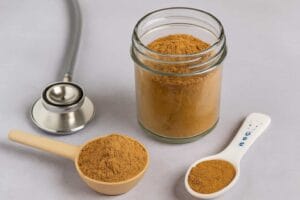In today’s fast-paced world, many people struggle to find quality sleep, turning to natural remedies for relief. One such remedy gaining popularity is the Reishi Mushroom for Treating Insomnia. Revered in traditional medicine for centuries, this adaptogenic fungus is now being explored for its potential to promote relaxation and improve sleep quality. In this article, we’ll delve into the science behind Reishi mushrooms99, how they might help with insomnia, and practical tips for incorporating them into your wellness routine. For more insights on mushroom benefits, you might also enjoy our comparison of mushroom gummies vs. porcini mushroom for nutritional value.
Understanding Reishi Mushroom and Its Role in Sleep Health
Reishi mushroom, scientifically known as Ganoderma lucidum, is a woody fungus traditionally used in East Asian medicine. Often called the “mushroom of immortality,” it’s prized for its calming effects and ability to support overall wellness. But how exactly does Reishi mushroom contribute to better sleep?
The key lies in its bioactive compounds, such as triterpenoids, polysaccharides, and peptidoglycans, which are believed to influence the nervous system. These compounds may help regulate the body’s stress response and promote relaxation, both essential for overcoming insomnia.
The Science Behind Reishi Mushroom’s Sleep Benefits
- Stress Reduction: Reishi is known to modulate cortisol levels, the hormone responsible for stress. Lower cortisol can ease the mind and body into a more restful state.
- Anti-Anxiety Effects: Some studies suggest Reishi may have anxiolytic properties, helping reduce anxiety symptoms that often accompany insomnia.
- Immune System Support: By supporting immune function, Reishi can indirectly improve sleep quality, as illness and inflammation frequently disrupt rest.
These effects combined make Reishi Mushroom for Treating Insomnia a promising natural approach for those seeking alternatives to pharmaceutical sleep aids.
How to Use Reishi Mushroom for Treating Insomnia
Incorporating Reishi mushroom into your routine can be simple and enjoyable. It’s available in various forms, including teas, tinctures, capsules, and gummies. Here’s a breakdown of popular options:
- Reishi Tea: Brewing dried Reishi slices or powdered extract into a tea is a traditional method. Drinking it about an hour before bedtime may help induce calmness.
- Capsules and Tablets: These offer a convenient way to consume standardized doses of Reishi extract daily.
- Tinctures: Liquid extracts can be added to water or juice for quick absorption.
- Gummies: For those who dislike the bitter taste of Reishi, gummies provide a tasty alternative. To explore how different mushroom gummies compare, check out our detailed guide on mushroom gummies vs. oyster mushroom for heart health.
It’s important to start with a low dose and gradually increase as needed, monitoring how your body responds. Consulting a healthcare professional before beginning any new supplement is also recommended, especially if you have underlying health conditions or take medications.
Potential Benefits and Considerations When Using Reishi for Sleep
| Benefit | Description | Supporting Evidence |
|---|---|---|
| Improved Sleep Quality | Reishi’s calming properties may lead to deeper, more restorative sleep cycles. | Clinical trials show reduced sleep latency and increased total sleep time in some participants. |
| Reduced Anxiety | Helps lower anxiety symptoms that interfere with falling asleep. | Animal studies demonstrate anxiolytic effects; human studies are emerging. |
| Immune Support | Enhanced immune function can reduce inflammation-related sleep disturbances. | Reishi polysaccharides have immunomodulatory effects supported by research. |
| Minimal Side Effects | Generally well-tolerated with few reported adverse reactions. | Long history of safe use in traditional medicine. |
While Reishi mushroom is considered safe for most people, some may experience mild side effects such as dry mouth, dizziness, or digestive discomfort. Pregnant or breastfeeding women should avoid Reishi unless advised by a healthcare provider.
Integrating Reishi Mushroom with Other Natural Sleep Aids
For those wanting to maximize their sleep support, combining Reishi mushroom with other natural remedies can be effective. Herbs such as valerian root, chamomile, and lavender are commonly used alongside Reishi to promote relaxation.
Additionally, lifestyle changes like maintaining a consistent sleep schedule, reducing screen time before bed, and creating a calming bedtime ritual can enhance the benefits of Reishi. If you are curious about how different mushroom supplements compare for various health goals, be sure to visit our page on mushroom gummies vs. turkey tail mushroom for immune system boost.
Reishi Mushroom for Treating Insomnia: What Does the Research Say?
Scientific interest in Reishi mushroom’s potential to treat insomnia is growing, though more large-scale human studies are needed. Preliminary research suggests that its unique blend of compounds can influence neurotransmitters like GABA and serotonin, which are crucial for sleep regulation.
One small clinical trial found that participants who took Reishi extract reported improvements in sleep quality and reductions in fatigue. Another study highlighted its role in reducing anxiety symptoms, a common root cause of insomnia. While these findings are promising, it’s essential to approach Reishi as part of a holistic sleep strategy rather than a standalone cure.
F.A.Q
- Can Reishi Mushroom for Treating Insomnia work for everyone?
While many people find Reishi helpful for improving sleep, individual responses vary. Factors like dosage, form of Reishi, and personal health conditions can influence effectiveness.
- How long does it take to see results when using Reishi for insomnia?
Some users report feeling more relaxed and sleeping better within a few days, but it may take several weeks of consistent use to notice significant improvements.
- Are there any side effects associated with Reishi Mushroom for Treating Insomnia?
Reishi is generally safe but can cause mild side effects such as dry mouth, dizziness, or stomach upset in some individuals. Consulting a healthcare provider before use is advisable.
- What are the health benefits of Reishi mushrooms
Reishi mushrooms are large, glossy fungi native to Asia and have been used for centuries in traditional Eastern medicine to support overall wellness and longevity. They’re believed to strengthen heart function, boost immunity, and reduce fatigue thanks to their bioactive compounds. To learn more about their proven health effects and traditional uses, visit WebMD’s detailed guide Health Benefits of Reishi Mushrooms
- Where can I find reliable Reishi mushroom supplements for insomnia?
High-quality Reishi supplements are available from reputable health stores and online retailers. Look for products that provide standardized extracts to ensure potency. For a broader perspective on mushroom supplements, check out our comparison of mushroom gummies vs. turkey tail mushroom for immune system boost.


